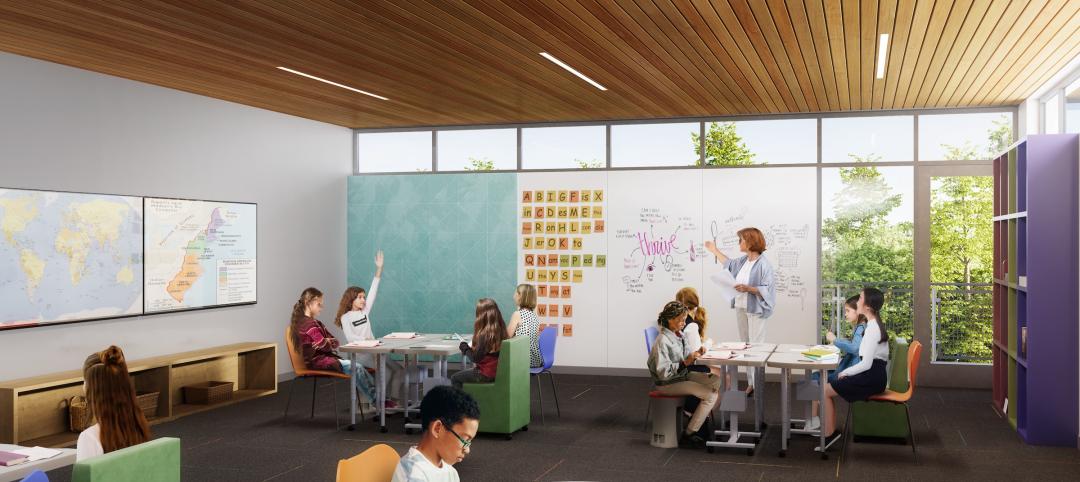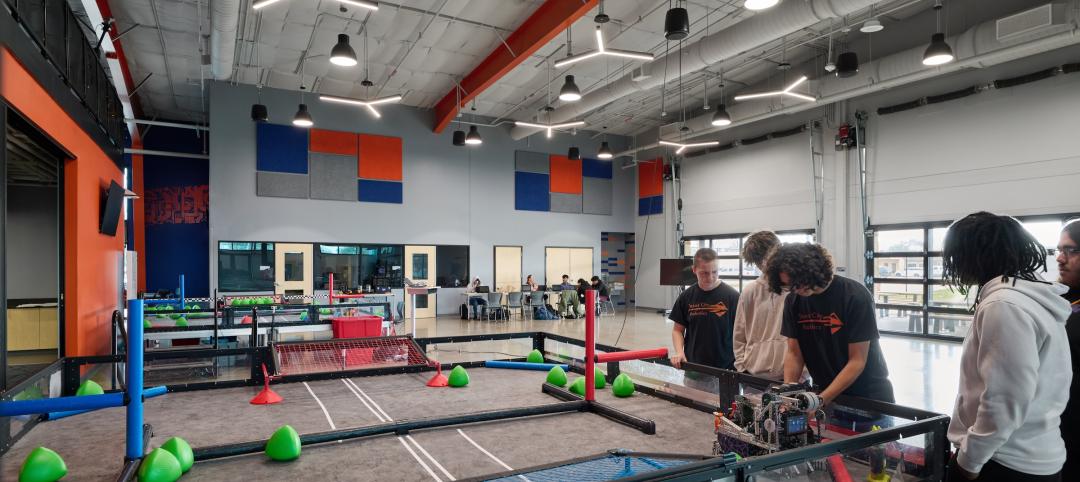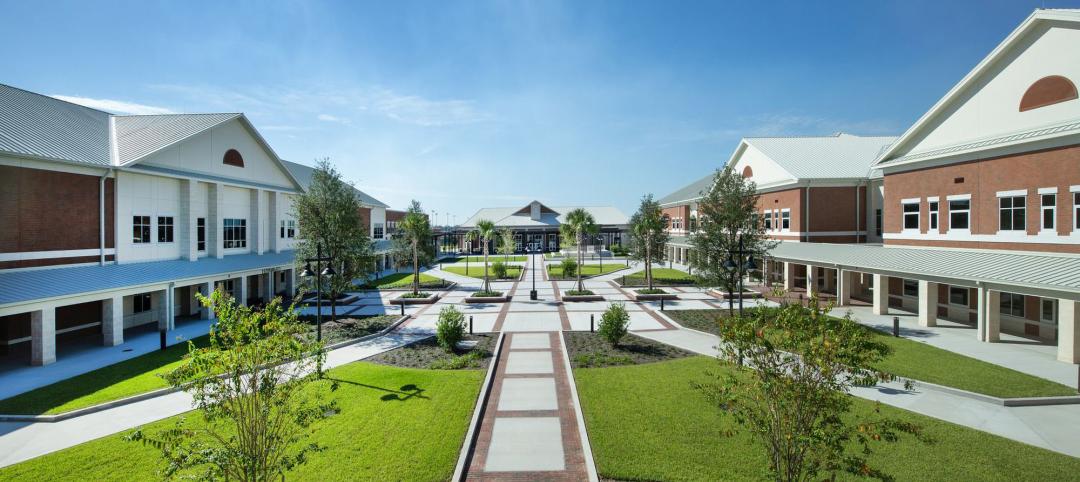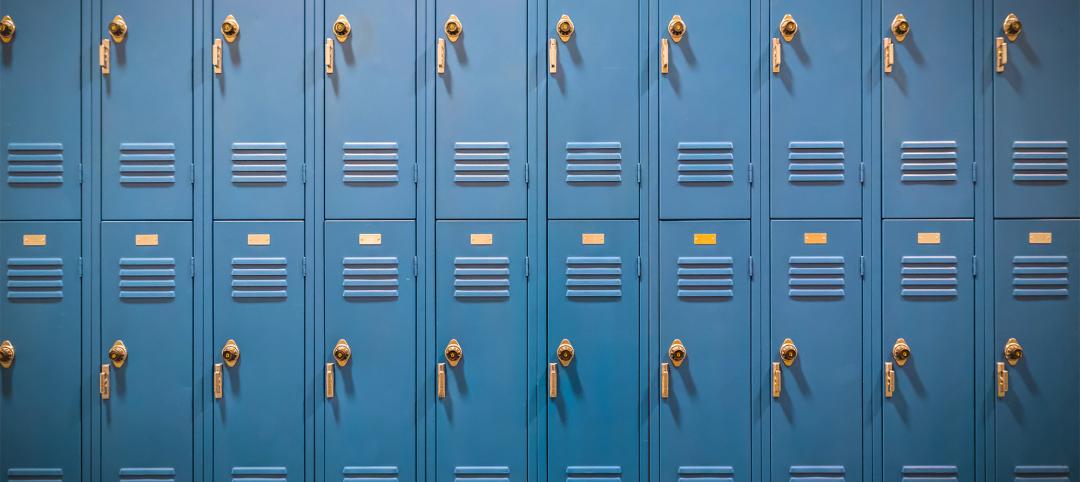 |
|
The proscenium was rebuilt after an interstitial floor housing the library was removed. The library was relocated to the former gymnasium space. |
Renovations to Seattle's historic Garfield High School focused mainly on restoring the 85-year-old building's faded beauty and creating a more usable and modern interior.
The 243,000-sf school (whose alumni include the impresario Quincy Jones) was so functionally inadequate that officials briefly considered razing it. But concerned stakeholders—including administrators, teachers, students, and community members—instead pushed for a massive renovation and wound up serving on the School Design Team. BD+C Renovation Awards judges were particularly impressed with the community's involvement in the $87 million overhaul.
For BLRB Architects of Tacoma, Wash., the Seattle office of Heery International (GC and CM), and the School Design Team, the project's biggest achievements include:
-
Converting the former auditorium into a social commons by demolishing an interstitial floor built in the '60s to house the library and reclaiming its three-story volume.
-
Rebuilding the ornate proscenium that was removed from around the stage when the '60s library cut the space in half.
-
Constructing a new 84,000-sf gymnasium and performing arts center.
—Jay W. Schneider, Senior Editor


Related Stories
K-12 Schools | Sep 30, 2024
The importance of selecting healthy materials for K-12 projects
Clark Nexsen interior designers Anna Claire Beethoven and Brittney Just, CID, IIDA, LEED Green Associate, share why it is imperative to specify healthy building materials in K-12 schools.
Education Facilities | Sep 16, 2024
Hot classrooms, playgrounds spur K-12 school districts to go beyond AC for cooling
With hotter weather occurring during the school year, school districts are turning to cooling strategies to complement air conditioning. Reflective playgrounds and roads, cool roofs and window films, shade structures and conversion of asphalt surfaces to a natural state are all being tried in various regions of the country.
K-12 Schools | Aug 29, 2024
Designing for dyslexia: How architecture can address neurodiversity in K-12 schools
Architects play a critical role in designing school environments that support students with learning differences, particularly dyslexia, by enhancing social and emotional competence and physical comfort. Effective design principles not only benefit students with dyslexia but also improve the learning experience for all students and faculty. This article explores how key design strategies at the campus, classroom, and individual levels can foster confidence, comfort, and resilience, thereby optimizing educational outcomes for students with dyslexia and other learning differences.
K-12 Schools | Aug 26, 2024
Windows in K-12 classrooms provide opportunities, not distractions
On a knee-jerk level, a window seems like a built-in distraction, guaranteed to promote wandering minds in any classroom or workspace. Yet, a steady stream of studies has found the opposite to be true.
K-12 Schools | Aug 8, 2024
New K-12 STEM center hosts robotics learning, competitions in Houston suburb
A new K-12 STEM Center in a Houston suburb is the venue for robotics learning and competitions along with education about other STEM subjects. An unused storage building was transformed into a lively space for students to immerse themselves in STEM subjects. Located in Texas City, the ISD Marathon STEM and Robotics Center is the first of its kind in the district.
Smart Buildings | Jul 25, 2024
A Swiss startup devises an intelligent photovoltaic façade that tracks and moves with the sun
Zurich Soft Robotics says Solskin can reduce building energy consumption by up to 80% while producing up to 40% more electricity than comparable façade systems.
K-12 Schools | Jul 15, 2024
A Cleveland suburb opens a $31.7 million new middle school and renovated high school
Accommodating 1,283 students in grades 6-12, the Warrensville, Ohio school complex features flexible learning environments and offers programs ranging from culinary arts and firefighting training to e-sports.
K-12 Schools | Jul 1, 2024
New guidelines for securing schools and community spaces released by the Door Security and Safety Foundation
The Door Security and Safety Foundation (DSSF), in collaboration with Door and Hardware Institute (DHI), recently released of “Are Your Door Openings Secure?.” The document provides guidelines to equip school administrators, building management personnel, and community leaders with a clear roadmap to create a secure and safe environment.
Senior Living Design | Jun 28, 2024
The country’s largest retirement community expands with educational facilities
The project will include a high school, a K-8 school, and an Early Learning Center aimed at serving the children of residents who work in qualified businesses within The Villages.
K-12 Schools | May 30, 2024
Inclusive design strategies to transform learning spaces
Students with disabilities and those experiencing mental health and behavioral conditions represent a group of the most vulnerable students at risk for failing to connect educationally and socially. Educators and school districts are struggling to accommodate all of these nuanced and, at times, overlapping conditions.
















